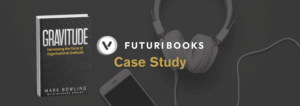The Next Chapter in Global Research Accessibility
Academic publishing has always carried the weight of two mandates: advancing knowledge with integrity, and ensuring that knowledge reaches as many minds as possible. As research consumption shifts beyond the printed page and beyond English a new accessibility frontier is emerging: audio.
In recent years, audiobooks have matured from entertainment novelty to trusted companion in lifelong learning and now, increasingly, in higher education and scholarly research.
Why Audio, Why Now?
Audio is not simply an alternative format. For many, it’s a primary point of access. Consider:
- 67% of students use mobile devices for education (Selfstarters, 2025), often turning to podcasts, voice notes, and narrated content to study on the move.
- Multilingual consumption is rising. A comprehensive analysis of over 87 million academic publications from 1990 to 2023 revealed that languages such as Indonesian, Portuguese, and Spanish have experienced growth rates surpassing that of English (Cornell University, 2025).
- 2.2 billion people globally live with some form of vision impairment (WHO), making traditional publishing models insufficient without accessible audio options.
- Hybrid learning models and digital-first expectations have created new pressure for publishers to meet learners where they are—not just on their screens, but in their earbuds.
There’s also the matter of retention. A study from The Institute of Educational Sciences (2023) found that learners engaging with both text and audio formats demonstrated 15 -17% higher comprehension scores compared to those relying on text alone.
Addressing the Format Barrier in Scholarly Work
Despite these trends, turning academic manuscripts into audio is rarely straightforward. Journal articles, textbooks, and white papers aren’t written for casual listening. They contain complex syntax, metadata, citations, and specialized vocabulary. A generic voice assistant won’t cut it.
Publishers have traditionally faced a trade-off: invest heavily in professional human narration (often upwards of $300 per finished hour), or risk low-fidelity options that fail to reflect the nuance delivery of the source material.
That gap is where innovation in AI voice synthesis is proving to be more than a cost-saver—it’s a facilitator of scale, compliance, and quality.
The Shift Toward Scalable Academic Audio
AI voice platforms like FuturiBooks are helping publishers break through these challenges by offering purpose-built tools for academic narration—while respecting the structure, depth, and professional tone of scholarly content.
Key capabilities include:
- Emotionally intelligent voice models that reflect the cadence of academic prose.
- Recognition of academic structure—citations, section headings, abstracts—preserving format integrity.
- Multilingual narration that captures nuance across regions and audiences.
- Editorial review tools to maintain compliance, quality, and institutional voice.
- Scalable options like bulk manuscript upload, priority processing, and custom voice libraries—designed for publishers managing large, multilingual catalogs.
Why Now Matters
This isn’t about keeping up with trends. It’s about building infrastructure for accessibility, compliance, and global reach. It’s about opening new channels for engagement—especially with international researchers, visually impaired audiences, and digitally native students—while ensuring scholarly work is as discoverable as it is rigorous.
And discoverability matters. Taylor and Francis reports that multimedia content, including audio, drives a 89% increase in downloads of academic articles. The Association of Audio Publishers noted 9% growth in audiobook revenue in 2023 alone. And New Books networks, an academic podcast consortium, is publishing over 70 episodes per week, indicating a significant expansion in educational podcasting. New Books Network.
The future isn’t just text-forward—it’s voice-enabled.
What’s Next
Audio is fast becoming a foundational layer of academic publishing. Solutions like FuturiBooks are showing that it’s possible to scale high-quality narration without sacrificing accuracy or editorial control, unlocking new levels of accessibility, visibility, and value.
For publishers looking to expand the reach of their catalog, streamline production workflows, or explore multilingual formats, the next chapter may very well be narrated.
Curious where your content strategy could go with premium AI voice?
Explore what’s next at FuturiBooks.ai







